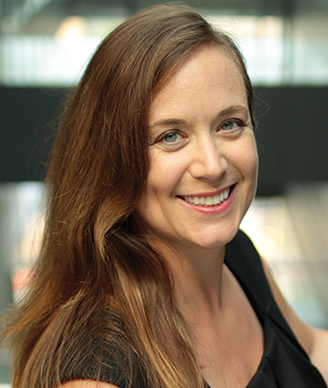SIO President Lynda Balneaves Hopes to Continue Work on Expanding the Society’s Reach
In this interview we discuss the goals of SIO, the response to donations intended for interdisciplinary integrative health, and how palliative care and psychosocial oncology can enhance each other.
Lynda Balneaves, PhD, RN

Founded in 2003, the Society for Integrative Oncology (SIO) is the premier multidisciplinary professional organization for integrative oncology. The organization works to advance evidence-based, comprehensive, integrative healthcare to improve the lives of people affected by cancer.
1.What are three major goals that you want to accomplish during your term as president of SIO?
LYNDA BALNEAVES: As president, I plan to develop goals for the society in conjunction with the incredibly diverse and experienced clinicians, researchers, and patient advocates who serve as our executive and board members.
That being said, I hope to continue the work of Dr. Jun Mao, former SIO president, in expanding our membership internationally. SIO has a strong membership in North America. Dr. Mao has worked to extend the reach of SIO into other parts of the world, including Asia and Europe. I want to continue that work and reach out to our colleagues in Europe and Asia and, hopefully, also the Middle East, Africa, Australia, and New Zealand. It would strengthen our organization to have that international perspective.
As part of extending our membership, I would like to see more allied professionals join SIO. I have many colleagues in organizations such as the Oncology Nursing Society who are interested in integrative medicine but have not heard of SIO. I want to reach out to these allied professionals and let them know that there is a place for them within SIO.
I also want to increase awareness of SIO and its mandate to support evidence-informed integrative oncology and the incorporation of evidence-based therapies into clinical practice in conventional cancer care. Part of that is going to be continued development of knowledge synthesis and translational material; for example, the practice guidelines that were developed for supportive care following breast cancer treatment, published in the Journal of the National Cancer Institute[1] and in CA: A Cancer Journal for Clinicians.[2] These knowledge synthesis and translational materials have very pragmatic value for oncology clinicians, particularly those who are not familiar with the area of integrative oncology. I would like to see us continue to do this type of work.
Finally, while we are not an advocacy organization, SIO is very much focused on promoting evidence through research, as well as ensuring that evidence-based therapies are moved into clinical practice. We have a wealth of experience in conducting research and applying evidence-based therapies in practice. We are on the ground working with patients and families. We understand the reasons why they are interested in these therapies and we see clinically the value of many of these therapies; however, we also see the flip side, where there can be harm associated with therapies that are not evidence-based. I would like to see SIO become a visible voice within society and the media for a more balanced dialogue about the potential value of integrative medicine.
2.UC Irvine recently received a $200 million donation from the Samueli family, to fund a first-of-its-kind College of Health Sciences focused on interdisciplinary integrative health. Many media outlets have criticized and ridiculed the donation as supporting “quackery,” though a writer for the Huffington Post[3] lambasted the media response as “shameful” and “profoundly anti-science.”
LYNDA BALNEAVES: I believe that there are certain people who are professional skeptics. That is the focus of their career. They have a vested interest in promoting that perspective. A lot of their criticisms, when you unpack them, are grounded in philosophical differences. From my experience in oncology, when I get those comments, their concern stems from an experience in which a patient was given bad advice and their therapy was not evidence-based. I respect that perspective. I have seen it myself.
However, these critiques sometimes may reflect ignorance about the current state of evidence that exists in integrative medicine. Many of the individuals who provide these critiques have no experience in integrative medicine research or practice. They have very limited knowledge of the therapies that exist and the evidence that supports them. Many of them have never worked with patients, particularly those with a cancer diagnosis who are looking for therapies that are going to preserve their hope, give them a sense of control, and perhaps manage some of the toxic side effects that many of our conventional therapies have.
When you combine the philosophical differences, concerns about patients getting bad advice, and ignorance, that is where many of these critiques come from. To me, it is not always a very balanced conversation. However, these critiques should be an opportunity for us to educate a broader audience, to talk about the research being done and the innovations in care that are offered by integrative oncology.
3.For the past decade, you have led the Complementary Medicine Education and Outcomes (CAMEO) research program, a Canadian project developed by the University of British Columbia School of Nursing and the British Columbia Cancer Agency. The goal of CAMEO has been to help cancer patients and health professionals make evidence-informed decisions about complementary therapies. Could you share some highlights and milestones of this program?
LYNDA BALNEAVES: CAMEO is an ongoing project and we are still publishing results and articles. One major highlight is that we had 1,500 people go through the CAMEO program, including patients, family members, and healthcare practitioners. That means that 1,500 people received balanced, nonjudgmental, evidence-informed information about complementary therapies and how to make decisions about them. We gave them tools and skills to go forward and continue to make informed decisions about these therapies.
We have also had other organizations around the world take up elements of our education program for patients and clinicians, and use it in their own setting to support people making informed decisions about these therapies. Seeing that global reach has been very exciting. For example, we have walked into a conventional cancer center in Canada and heard grumbling in the room about “alternative” medicine, and then heard people respond, “No, these are the evidence-based people. These are the ones you need to listen to.” It is great knowing that CAMEO has contributed to people being more accepting about the potential of integrative oncology.
4.In addition to your experience in palliative care, you have a background in psychosocial oncology, which seems to be fairly common in the field of integrative oncology. How do you feel these disciplines enhance each other?
LYNDA BALNEAVES: To me, when you approach oncology from a psychosocial perspective, you are looking beyond the tumor and the cancer. You are looking at a patient’s social well-being, spiritual well-being, and more. You are looking at that global perspective of quality of life.
Integrative oncology and psychosocial oncology complement each other because many of the therapies in integrative oncology, particularly the ones that have strong evidence, are addressing issues beyond the physical. They focus on the whole person as much as possible. We look beyond the cancer to see why patients are feeling the way they are feeling and what can be contributing to this experience. We make sure that they have the appropriate referrals and support to address these issues. We are interested in hearing about survivorship, morbidity, and mortality-those concrete outcomes-but also the subjective experience of treatment and providing ways that we can empower patients and improve their overall healing experience.
Financial Disclosure:The author has no significant financial interest in or other relationship with the manufacturer of any product or provider of any service mentioned in this article.
References:
1. Greenlee H, Balneaves LG, Carlson LE, et al. Clinical practice guidelines on the use of integrative therapies as supportive care in patients treated for breast cancer. J Natl Cancer Inst Monogr. 2014;2014:346-58.
2. Runowicz CD, Leach CR, Henry NL, et al. American Cancer Society/American Society of Clinical Oncology breast cancer survivorship care guideline. CA Cancer J Clin. 2016;66:43-73.
3. Weeks J. Shameful media response to the Samueli’s visionary $200-million integrative health investment at UC Irvine. The Huffington Post. September 28, 2017. https://www.huffingtonpost.com/entry/shameful-media-response-to-the-samuelis-visionary_us_59c7d9a0e4b0b7022a646b73.
